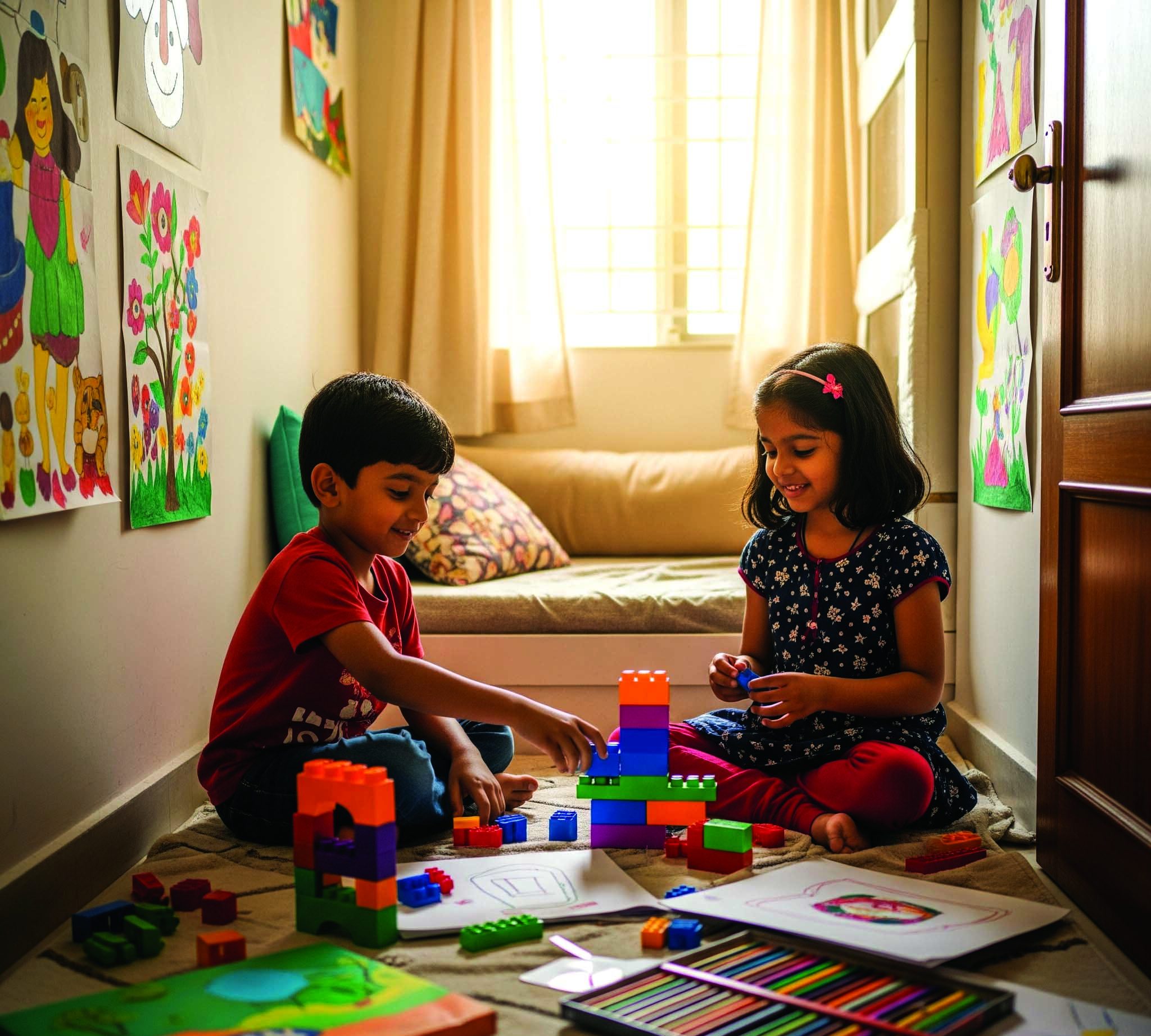
Sanjivani Pargal
Sanjivani Pargal is a Bengaluru-based psychologist, art therapist and founder of ‘Mental well-being with Sanjivani’, an online platform promoting mental health
 How do I nurture the creativity and imagination of my children, aged five and eight years, living in a small apartment with minimal access to open play areas?
How do I nurture the creativity and imagination of my children, aged five and eight years, living in a small apartment with minimal access to open play areas?
— Shifa Roma, Mumbai
With my experience as an art therapist, I believe you can design an environment that sparks curiosity and creativity within children, even in a “small apartment”. For instance, you could declare a dedicated space christened ‘Imagination Zone’ in the living room — a corner filled with open-ended materials such as building blocks, art supplies, and dress-up clothes.
These simple, multi-purpose items will encourage your children to transform ordinary spaces into fantasy worlds, whether it’s a fort made of blankets, a puppet show with kitchen spoons, turning cardboard boxes into spaceships or old clothes into superhero capes.
Ultimately, you don’t need a sprawling playroom for stimulating creativity; you need to provide the freedom and encouragement for exploration. Creativity is about seeing the potential for magic in everyday objects and encouraging boundless curiosity. Creativity isn’t about having more space; it’s about having more freedom to think, dream, and make. Give a child a box, and she may give you a universe.
I want to maintain a consistent sleep schedule for my four-year-old twins. Please advise.
— Hira Shubam, Delhi
A cornerstone of healthy sleep is establishing a predictable routine. I consistently advise parents on the importance of a strict, non-negotiable bedtime and wake-up time, maintained even on weekends. This regularity is critical for regulating a child’s internal body clock.
Begin with establishing a consistent pre-sleep ritual – a warm bath, reading a storybook, or gentle play. This pre-sleep ritual is a powerful cue, signaling to children’s brains and bodies that it’s time to transition from wakefulness to rest.
Avoid digital screens at least an hour before bedtime because the blue light emitted from digital devices disrupts the production of melatonin, a hormone that regulates sleep. Also, limit intake of sugary foods and caffeine in the latter part of the day.
Finally, optimally integrate daytime activity and natural light exposure to maintain circadian rhythms and promote parental consistency and calm.
Parental burnout is fast becoming an epidemic. Please share some suggestions to cope with parenting stress.
— Kripa Rai, Chennai
Self-care for parents is not a luxury, but a necessity for the family unit to flourish and thrive. Parents must prioritize self-care and ‘me-time,’ however brief. Even 15 minutes of quiet reflection, a short walk to clear one’s mind amidst the city’s hum, listening to music, or playing a sport, can significantly replenish mental reserves. Daily practices such as deep breathing exercise, guided meditation sessions, easily accessible on numerous apps, significantly regulate and improve stress responses. I suggest you also connect with other parents, seek membership of local parent support groups or online communities that provide shared experiences and practical advice.
If stress is interfering with your daily routine, consult a therapist or counsellor. Please note that seeking professional help is not a sign of weakness but a proactive step towards developing mental resilience.























